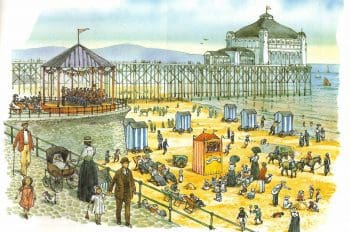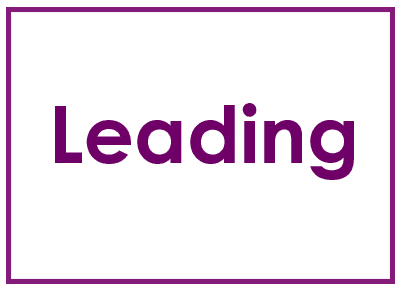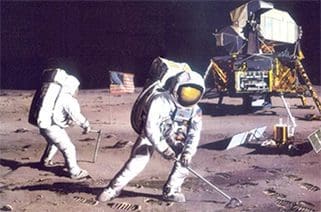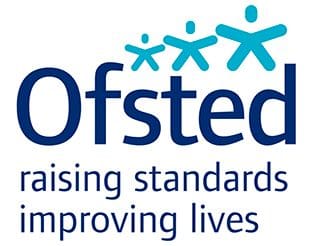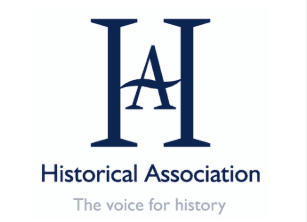
I don’t know how many of you have caught sight of this week’s latest contribution to the on-going debate about history teaching in our schools but it makes interesting, if rather predictable, reading.
Once you read the words of Nick Gibb early in the report you feel the tone has been set: ‘ It cannot be right that a pupil can achieve a 9 in GCSE history and yet never have heard of the Glorious Revolution or the Act of Union’. Immediately my hackles rise: prejudice without evidence. On virtually the next page there is a bar chart showing that of the 500 responding schools, 49% studied the Glorious Revolution at KS3 and 39% the Act of Union. So the chances of a pupil never having heard of either is not quite as bleak as he would have us believe. Underlying his assertion lies the belief that GCSE history is flawed. Its too bitty and nowhere can students show their understanding of the long arc of history. Gibb and others are dismissive of the GCSE outline study of Medicine/Public Health through time currently studied by 2 in 3 GCSE candidates.
What Gibb wants instead is a fourth module broadly surveying the entire 1066-1989 period in a short study occupying no more than 15% of the teaching time. I find this most curious.
Elsewhere the report is critical of what it sees as unwelcome duplication and repetition of GCSE topics at A level. And here they may well have a point. But surely repeating the whole of KS3 British history in just one short topic a year later at GCSE makes no sense at all. Its not as though they are critical of KS3 either. One of the reports recommendation is that politicians don’t tinker with KS3, even though they can’t resist getting on their hobby-horses when they learn that the battle of Agincourt comes at the bottom of all KS3 topics taught and Waterloo and Trafalgar not far above!
So their main gripe is GCSE against a backdrop of general satisfaction with the state of secondary history which they describe as being in a strong position. 92% of lessons are taught by specialists and 2 in every 3 pupils are taught all their KS3 lessons by a specialist. Schools on average teach history for over 100 minutes a week. So that looks good and there is no shortage of trained history teachers even if the report is critical of the initial training they receive.
What they keep returning to is the fact that students struggle to develop a synoptic outline of the past. What evidence they use to make this sweeping assertion is open to question. I think they are just assuming because the GCSE topics seem a little narrow that this must be impeding students’ chronological understanding.
Placing all their hope in a brief, repetitive rehash of KS3 hardly seems to be a recipe for remedying this deficiency. But Gibb thinks we should all be equipping students to answer his favourite celebrated question :” To what extent could the Glorious Revolution be considered the most significant event in the development of British democracy?”
Much of the rest of the report’s fire is aimed at history teachers’ reluctance to use textbooks (one of the panel edits a series of recent history textbooks!). Sample ‘pages’ from commercial websites are subjected to critical scrutiny and many are found wanting but there is a very clear recommendation that schools should be using Complete Curriculum Programmes,not school-produced resources, without for a moment thinking why history teachers might prefer to create their own, despite the additional workload, or without realising how much exchange of high quality ideas and resources there is between schools.
It is dismissively treated as an unnecessary self-imposed burden, a waste of time, and all leading to an inferior product. I wonder how many of them have found the ideal textbook that is cheap and comprehensive enough to do justice to the department’s elegantly designed curriculum. Let us know when you have and we’ll easily find flaws. It’s all beginning to sound a little as if we are not far away from state-controlled textbooks!
As you have probably gathered, you have to read this document through the lens of knowing who the members of the group are and their motivations. I’ll leave you to make up your own mind.
What the report does helpfully do is :
- to shine a light on the overlap between GCSE and A level:
- list all the options and numbers for each GCSE exam board ( i.e. 55% of the sample of 500 schools, which is just under one in three secondary schools, study GCSE history with Pearsons Edexdel, and less than 10% OCR!):
- tell politicians not to tinker with KS3 .
Unfortunately their solution to the GCSE issue is the wrong one.

